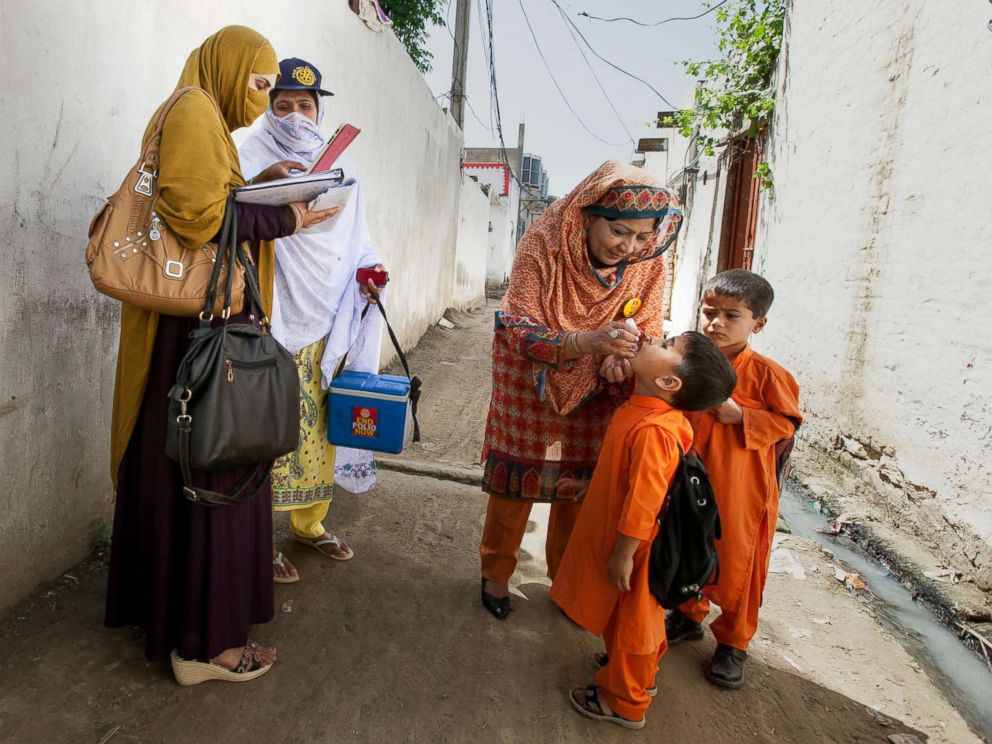By: Dilbar Ali
Pakistan is grappling with a resurgence of polio, a disease that seemed nearly eradicated. The recent comeback of polio cases underscores the critical lapses in Pakistan’s public health response. This return, linked to the wild poliovirus type 1 (WPV-1) strain from Afghanistan, serves as a stark reminder of how fragile the victory against polio truly is. The cry of a young child, paralyzed by the virus in Dera Bugti, is a poignant symbol of a tragedy that could have been prevented.
Six months after researchers at the National Institute of Health’s Pakistan Polio Laboratory detected wild poliovirus type 1 (WPV-1) in Dera Bugti sewage samples, a young child has been paralyzed by the virus. Initially suffering from lower limb weakness, the child’s condition was diagnosed as poliomyelitis, with tests confirming the presence of the virus. This strain, part of the YB3A cluster and believed to be imported from Afghanistan, accounted for 90% of Pakistan’s polio cases last year. This case, the first reported in Pakistan for 2024 and the first in Dera Bugti in over a decade, highlights the severe risk posed by the movement of at-risk populations. This terrible story is not an isolated incident but a reflection of a wider crisis in Pakistan’s healthcare landscape. Despite the clear danger, Pakistan’s response has been mild, lacking the urgency and determination needed for such a serious challenge. The need for quick action is crucial as the country faces a looming public health emergency. Pakistan faces the threat of polio spreading across its border with Afghanistan, the only other nation where the disease remains prevalent.
Yet, amidst the darkness, there are rays of hope thanks to the unwavering efforts of dedicated healthcare professionals risking their lives to safeguard Pakistan’s future. Their relentless commitment to eradicating polio serves as a source of hope amid the adversity. However, without the support of the government’s administrative apparatus, their efforts are destined to falter.
Pakistan finds itself in a precarious situation where a full-blown polio epidemic is looming. There is a clear but challenging path ahead. Key elements in the fight against polio include boosting community participation, strengthening vaccination programs in high-risk regions, and addressing vaccine hesitancy. Additionally, improving access to clean water and sanitation facilities will support eradication efforts and lay the foundation for a healthier future.
A major challenge faced by health workers is hostility and resistance from certain segments of the population. Vaccinators encounter hostility and skepticism, with some parents refusing to allow their children to receive polio drops. These brave workers endure physical danger and emotional strain, as they confront distrust and animosity while striving to protect the nation’s youth.
A robust public awareness campaign is essential to tackle this problem. Government and health organizations must disseminate information about the importance of vaccinations through both traditional and social media platforms. It’s up to community leaders and influencers to prove rumors wrong and build trust within their communities. Collaboration between public health workers and the community is crucial in the battle against polio, without it, victory is unattainable.
There is no shortcut to resolving this issue. The current situation demands a thorough and efficient plan that addresses every aspect of the public health crisis. Alongside vaccination campaigns and surveillance, this includes a focus on improving sanitation and hygiene practices. Pakistan has faced significant challenges due to neglecting its deteriorating sewage infrastructure and leaking water pipes in affected regions. Experts emphasize keeping people healthy by ensuring everyone gets vaccinated and controlling the border with Afghanistan, the only neighboring country where polio is still present. Community campaigns are also important. Involving community leaders and dispelling vaccine myths can help increase acceptance of vaccinations.
The fight against polio in Pakistan faces numerous obstacles, such as security risks for vaccination teams, vaccine hesitancy, and the spread of the virus across borders. However, Pakistan can move closer to a polio-free future through the implementation of a comprehensive strategy. This strategy should encompass enhancements in sanitation, increased surveillance, effective communication, and robust collaboration across borders. Sustaining these efforts requires consistent government support and sufficient financial resources. The window for decisive action is narrowing, underscoring the importance of Pakistan’s commitment to securing a healthy future for its children.
The fight against polio in Pakistan faces numerous obstacles, such as security risks for vaccination teams, vaccine hesitancy, and the spread of the virus across its border. However, Pakistan can move closer to a polio-free future through the implementation of a comprehensive strategy. This strategy should encompass enhancements in sanitation, increased surveillance, effective communication, and robust collaboration with its neighboring country. Sustaining these efforts requires consistent government support and sufficient financial resources. The window for decisive action is narrowing, underscoring the importance of Pakistan’s commitment to securing a healthy future for its children.
With time running out and the stakes higher than ever, Pakistan’s commitment to this cause will be measured not by words but by decisive action to secure a polio-free future for generations to come. The era of complacency is over. The time to take action is upon us. Pakistan is at a crossroads—either give in to the threat of polio or rise to the occasion and pave the way for a brighter, healthier tomorrow.
The writer is a freelance columnist. He can be reached at [email protected]








